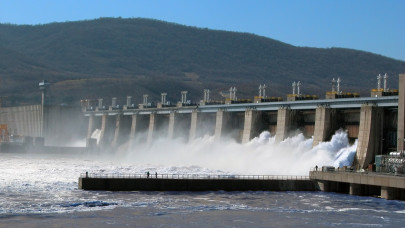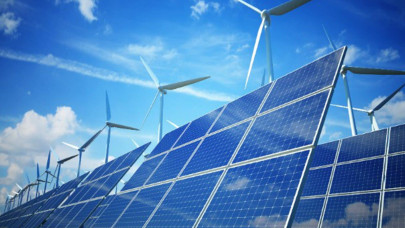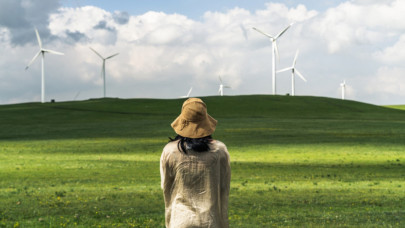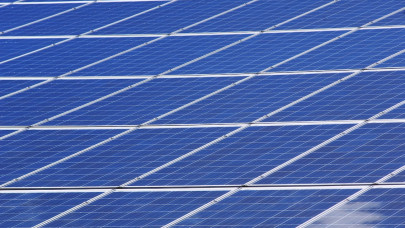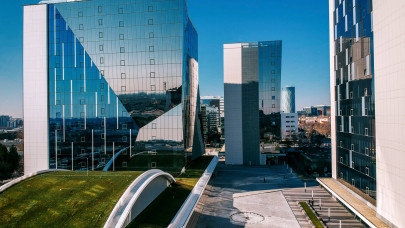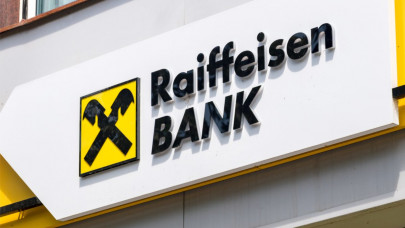What does the concept of sustainability mean for Egger Romania and how do you translate it into concrete initiatives?
Sustainability plays a major role in the success of Egger Romania. From this perspective, the company has developed environmental declarations across the entire production and use chain for all main products. They are used in the certification of sustainable buildings and describe the environmental impact of a product over its entire life cycle, from production and use to final disposal. Then, the technology used by Egger Romania consists of the latest machinery, based on state-of-the-art technology. As a family-owned business, a key principle at the group level is that we act with future generations in mind and take environmental, economic, and social responsibility. As one of the leading producers of wood-based materials, we are conscious of our responsibility towards the environment and society. It is a testament to our commitment to this principle that we are transparent about who we are, what we do, and how we act.
From a more concrete perspective, the Egger plant in Romania has its management team responsible for environmental and energy issues. This is supported and coordinated by a comprehensive Group-wide team that measures the sustainability performance of the companies. Thus, Egger Romania uses an integrated management system, which allows continuous monitoring and improvement of the obligations undertaken in different and clearly defined areas. This system generates a materiality analysis that defines the key topics for the company's sustainability performance. The first dimension of this analysis focuses on the significant impact of the company's activities and business relationships on society and the environment.
The second is the relevance of the issues to stakeholders. It became clear that the following topics generate the greatest interest for our stakeholders: the use of sustainably sourced wood and recycled materials, product safety, environmental protection, energy efficiency, and renewable energy in production. At the same time, the topics that were assessed as having a particularly high impact are environmental protection, energy efficiency, renewable energy in production, occupational health and safety, and products from renewable raw materials.
What actions are you taking on the renewable energy component?
Generating energy from renewable sources primarily covers our own needs. At the moment, 53% of the Rădăuți platform's energy needs are from renewable sources. At the same time, our strategic goal is to reduce specific energy consumption (energy consumption per m³ of plate) by 10% by 2030 compared to 2018. In 2022, for example, energy efficiency improved by 11.5% compared to the previous year, primarily through modernization and new investments in modern technology. This includes energy-efficient combustion and production systems.
To complete the integrated production circuit, the electricity and heat production plant was commissioned in 2013. This made it possible to use the biomass generated on the Rădăuți platform. To promote decoupling from fossil fuels, we promote integrated energy concepts that have the highest efficiency and lowest energy production costs.
Our processes are structured in resource-conserving cycles, so we mainly use wood-based fuels as renewable energy sources. Biomass is used where it is created, on the platform, and therefore does not cause additional environmental impact through traffic. The fuel is mainly bark, wood residues, and processing dust, i.e. material that cannot be used in production. The biomass power plant's thermal boiler generates heat energy in the form of steam, which is used to produce electricity, and heat energy in the form of hot gases. The latter is used in the drying of wood chips. This means we no longer use natural gas or fossil fuels.
So, the existence of the biomass plant saves natural gas as a fossil energy source. With complex energy concepts and consistent use of wood fuels, we have managed to keep the share of renewable fuels at a high level of around 76%. In the future, reducing the heat required to dry wood will also be possible as the proportion of recycled wood use increases steadily.
What are the biggest difficulties in implementing Egger Romania's sustainability actions?
I will start with a concrete example that illustrates the exposure of a company in the context of security crises, for example, with negative economic effects, including on its sustainability objectives. Against the background of the Russian-Ukrainian conflict and the drop in demand in the wood products market, we did not produce at full capacity and had more start-ups and shutdowns than usual. As a result, we use more natural gas as a fossil fuel.
Then there is the risk of illegal logging in the supply chain of wood and wood co-products. Ecological risks include loss of biodiversity through destruction of nature reserves and deforestation. Unsustainable use of wood carries the risk of negative impact on forest ecosystems, for example through soil erosion.
Social risks in the timber supply chain arise through violations of labor safety or civil rights. Especially in densely populated areas, even with sustainable forest management, timber harvesting risks temporarily disrupting the recreational function of the forest.
Opportunities arise from our close relationships with timber suppliers and the increasing proportion of verified and certified supplies in our supply chain. We are also contributing to resource conservation through the increasing use of wood co-products and recycled wood. Egger Romania has now reached a recycled wood use rate in the production of chipboards of over 20%.
In the context of the intense debate on illegal logging, what is Egger's position on this issue?
First of all, Egger is a producer of wood-based materials and does not harvest wood but buys it from the market. Therefore, the raw material used by the company is purchased from licensed logging companies, respecting, without exception, all legal regulations. Given our compliance obligations, we apply a zero-tolerance policy towards illegal logging and implement the strictest controls on all our wood suppliers. Our strategic objective is to limit the risk of purchasing illegally harvested timber through an audit system and to maintain 100% verified timber in our purchases.
In addition to full compliance with national and European legislation, Egger has submitted its own analysis and monitoring system as well as its supply chains in countries at risk, including Romania, to an external and independent monitoring agreement by EU Regulation 995/2010. In addition, Egger is one of the first wood-based material producers worldwide to be certified according to the ISO 38200 Chain of Custody (COC) standard for the supply chain of wood and wood products. At the same time, our company reports, without exception, any violation of legal regulations.
Egger appreciates and encourages the efforts of environmental associations in the field of sustainable forestry. Like them, we support the efforts against illegal logging, the need for strict legislation, and all necessary regulatory measures to protect Romania's resources. Without sustainably preserving these resources, our company could not continue to operate and communities would be severely affected. Only compliance with the law, effective monitoring, and transparency of all companies in the sector will ensure sustainable and suspicion-free economic activity. At the same time, we encourage the media to objectively assess the work of all economic operators, the legislative framework in which we operate, and the national and European political context. The widespread suspicions of illegal practices in the sector affect not only companies that operate in full compliance with legal regulations but also the communities that benefit from sustainable economic activity.
How do you assess the new Forest Code's approach to sustainability?
Egger Romania welcomes the initiative to design and implement a new Forestry Code, ensuring a fair and efficient framework for all actors in the sector. At the same time, we sent our views to the Ministry of Environment as part of the public consultation process on this new legislative document, pointing out the need for the new Forest Code to have a Forest-centric approach. Thus, we stressed the imperative for a comprehensive Forest Code that prioritizes sustainable logging and regulation in line with best practices in the European Union. We believe that illegal logging and lack of predictability in the forestry sector are affecting companies with the right behavior, who understand how to use this renewable resource in a way that fully benefits the national economy, communities, and the end user. In this context, it becomes clear that a forestry code designed to regulate and control primarily the exploitation of the main source of timber is not just a choice, but a necessity based on the best practices of the European Union.
Given the latest EU regulations on traceability and management of timber material, we have also publicly conveyed to the Ministry that the focus of the new Forestry Code should also be directed as a priority towards the already approved EUDR legislation, which will enter into force at the end of 2024. As a result, much stronger and more transparent control of the first placing on the market of timber materials is desirable compared to the current legislation. This is to avoid the introduction of illegally sourced timber into the economy. At the same time, as part of the public consultation, Egger Romania also drew attention to some specific aspects of the new draft Forest Code. For example, state policies to encourage the higher value of wood in products for long-term use or through the efficient energy use of wood resources must be very well defined, so that a wood material that can be raw material is not used as fuel.
What are your objectives regarding Egger Romania's sustainability policy?
As a general approach, Egger Romania is working proactively to implement European and national climate objectives. Thus, the company has set itself three broad objectives for ensuring environmentally friendly production. The first is to reduce specific greenhouse gas emissions by 15% by 2030 against 2018 levels. The second is to reduce specific energy consumption by 10% by 2030 compared to 2018 levels. And the third is to reduce specific waste (household waste) by 10% by 2025 compared to 2018 levels. At the same time, we are continuing our strategy to increase the use of recycled wood in the production of chipboard, with a target of 25% by 2030, compared to 20% today.
Egger has always operated with future generations in mind. We make decisions wisely and want to respect our pioneering role as a responsible player both now and in the future. From this mindset comes our great responsibility to actively contribute to climate protection. Our commitment is to reduce greenhouse gas emissions that hurt the climate in line with the Paris Climate Agreement. We are committed to achieving Net Zero by 2050, which means that emissions must be removed from the atmosphere at the same rate as they are produced.
The principle is simple: companies must eliminate climate-impacting emissions from their operations, including the entire value chain, and at the same time remove from the atmosphere those emissions they cannot eliminate. Egger is committed to reducing its climate-damaging emissions. To this end, we have developed a comprehensive Group-wide approach to how we will steadily reduce climate-damaging emissions to Net Zero by 2050. For this to be achieved, comprehensive sets of measures are needed in many company areas. Therefore, we are setting milestones and interim targets and will communicate transparently where we stand. In doing so, we want to ensure a sustainable lifestyle and work with our products, both now and in the future.



